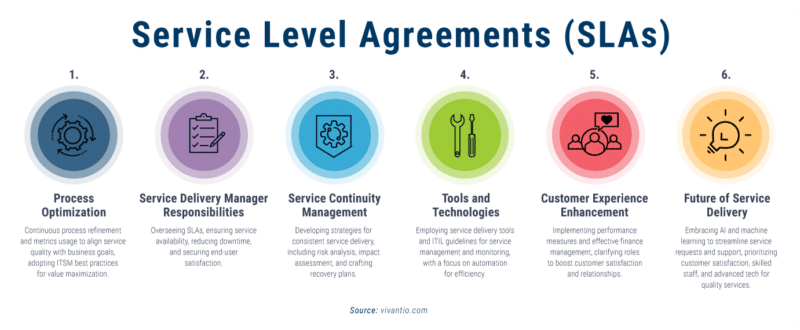자유게시판
| 제목 | Understanding Legal and Compliance Aspects in Your Outsourcing Journey |
|---|---|
| 작성자 | Deb Provan |
| 조회수 | 1회 |
| 작성일 | 25-05-19 04:36 |
| 링크 |
본문
This article is a submission by Managed Services Partners. Managed Services Partners is an outsourcing company with over 6 years of experience assisting companies improve operations and drive development.

Starting the contracting out journey is an undertaking that many organizations carry out to enhance efficiencies, reduce expenses, and leverage specialized skill.

However, alongside these possible benefits come a host of legal and compliance intricacies that need to be carefully navigated to make sure the and sustainability of outsourcing initiatives.
This thorough guide will check out crucial legal and compliance factors to consider, with a concentrate on information personal privacy laws, non-disclosure arrangements (NDAs), non-compete provisions, and the important function of adaptability in today's dynamic service environment.
The contracting out landscape

Outsourcing is more than a method for unloading non-core tasks; it is a transformative method that can improve a company's versatility and competitiveness.
Whether it's IT services, customer assistance, making processes, or human resources, outsourcing can offer a considerable edge. Companies that successfully outsource can concentrate on core business operations, drive innovation, and access leading talent without the overhead expenses of full-time employment.
However, this journey is not without its legal and compliance challenges. Companies need to bear in mind the intricacies surrounding the transfer and management of data, the security of copyright (IP), and the maintenance of regulative compliance.
Given the global nature of outsourcing, organizations should also consider cross-border legal implications, which may vary considerably depending upon the nation where the outsourcing supplier operates.

Understanding these aspects is necessary in making sure that contracting out collaborations align with a business's strategic goals while mitigating potential legal threats.
In most cases, organizations that overlook legal and compliance considerations deal with expensive disputes, loss of sensitive data, or reputational damage that can take years to recuperate from.
Importance of legal factors to consider
Outsourcing naturally involves legal considerations that are necessary to securing a company's interests. At the forefront is the requirement to secure delicate info. Companies must comprehend and follow data privacy laws that govern the jurisdictions in which they run.
This is particularly crucial as data breaches can result in serious punitive damages and reputational damage.
Furthermore, intellectual home rights need to be clearly specified in outsourcing agreements to avoid unapproved use or misappropriation of proprietary properties. If these rights are not effectively developed, a service may lose control over critical developments or confidential company procedures.
For companies running in highly regulated markets such as health care, financing, or legal services, compliance requirements are much more rigid.
Following regulations such as the General Data Protection Regulation (GDPR) in Europe or the Health Insurance Portability and Accountability Act (HIPAA) in the United States is necessary to preventing legal issues.
Non-Disclosure Agreements (NDAs) and non-compete provisions
When outsourcing, companies often share exclusive info with external company.
To protect this important info, NDAs are used. These arrangements are developed to prevent the unapproved dissemination of secret information, therefore protecting the company's competitive benefit.
NDAs should be detailed and lawfully binding, plainly outlining what makes up private info and the commitments of both celebrations in dealing with sensitive data. Businesses need to also make sure that their NDAs consist of arrangements for legal recourse in case of breaches.
Similarly, non-compete stipulations can be included to prevent company from making use of sensitive knowledge gotten throughout the contracting out collaboration to benefit a rival. This is particularly important when contracting out freelancers or companies that may have multiple clients in the exact same market.
However, the enforceability of non-compete stipulations can differ significantly depending upon the jurisdiction. Some regions have rigorous regulations limiting the scope and duration of such stipulations.
Therefore, it's important for companies to speak with legal specialists with experience in the pertinent legal frameworks to prepare efficient agreements.
Contracts: Setting the foundation
Contracts serve as the blueprint for the contracting out collaboration, specifying roles, obligations, deliverables, and timelines. They likewise describe the legal and compliance expectations for both parties.
A well-structured agreement must address a number of crucial elements:
Scope of work: Clear and in-depth descriptions of the services to be offered, including quality requirements and efficiency metrics.
Data security: Specific provisions connected to information security, information transfer procedures, and breach notification procedures to make sure adherence to privacy laws.
Copyright rights: Provisions that establish ownership of IP developed throughout the collaboration, and terms that protect pre-existing IP.
Termination provisions: Terms that resolve the possible end of the outsourcing relationship, consisting of notification durations and conditions under which termination can occur without penalty.
Additionally, organizations need to think about carrying out service-level arrangements (SLAs) to guarantee accountability and efficiency tracking. SLAs specify measurable benchmarks that the outsourcing service provider should fulfill, providing companies with option if expectations are not satisfied.
Engaging with company
Consulting with prospective company throughout the early stages of the outsourcing journey is a tactical relocation. This engagement allows companies to gauge the service provider's ability to meet legal and compliance requirements.
Thorough vetting procedures, such as requesting referrals, evaluating past projects, and evaluating compliance certifications, can offer valuable insights into the provider's reliability and adherence to industry requirements.
Businesses ought to likewise assess the financial stability of possible outsourcing partners.
A provider that faces monetary challenges might not be able to keep operations long-lasting, posturing a risk to ongoing tasks. Conducting due diligence in advance can prevent future disturbances.
The function of versatility in legal and compliance methods
Adaptability is a crucial part of successful outsourcing, particularly when it concerns navigating progressing legal landscapes. Regulations and market conditions can alter quickly, making it vital for business to remain agile.

Building versatility into agreements and establishing processes for continuous compliance tracking can assist organizations adjust to brand-new legal requirements and maintain an one-upmanship.
For instance, if a business is outsourcing consumer assistance operations to multiple countries, they need to make sure compliance with various national laws regarding customer defense and information privacy.
Regularly updating policies and contracts in action to legislative changes can prevent legal mistakes.
Real-world considerations and best practices
To ensure legal and compliance success in outsourcing, organizations need to embrace the following finest practices:
Regular audits and assessments
Conduct periodic audits and evaluations to guarantee that company remain certified with legal and regulative requirements. This proactive approach can assist recognize prospective gaps before they escalate into significant problems.
Training and awareness
Educate workers and outsourced groups on information defense practices and legal obligations. This guarantees that everyone involved in the contracting out journey understands the importance of compliance and the role they play in safeguarding details.
Collaboration and interaction
Foster a collaborative relationship with company. Open lines of interaction can assist deal with compliance concerns without delay and facilitate joint problem-solving efforts.
Crisis management planning
Have contingency strategies in place in case of security breaches, agreement disagreements, or provider failures. A well-structured crisis management strategy guarantees that organizations can rapidly react to obstacles without significant interruptions.
Legal compliance for contracting out success
Understanding the legal and compliance aspects of outsourcing is essential for services aiming to leverage external abilities while protecting their interests. By concentrating on key locations such as information personal privacy, NDAs, non-compete provisions, copyright rights, and adaptability, business can efficiently browse the outsourcing landscape.
Successful outsourcing hinges on a collective approach between the business and its company. Building trust and keeping transparent communication can result in efficient problem-solving and a shared commitment to compliance.




